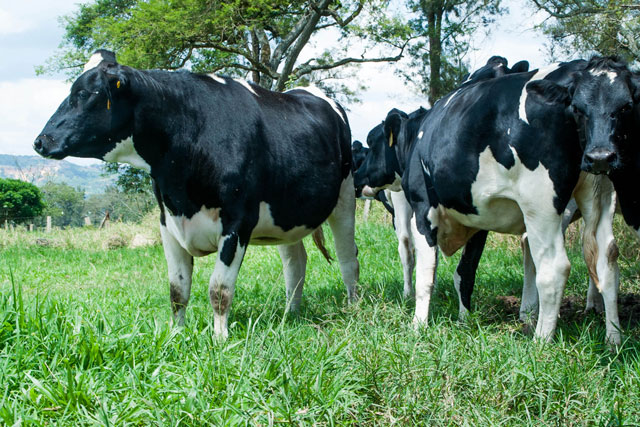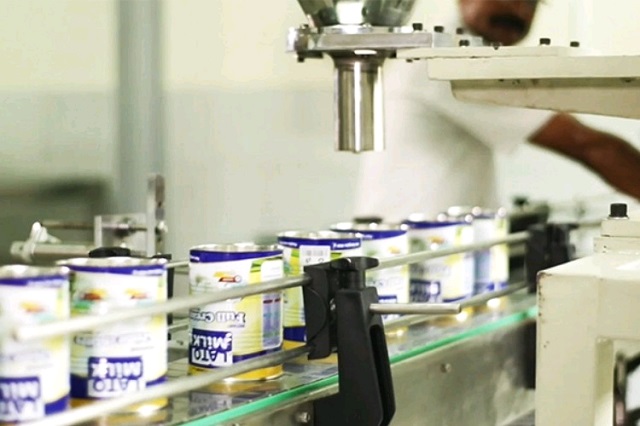
Kampala, Uganda | THE INDEPENDENT & PARLIAMENT MEDIA | Ugandan Members of Parliament (MPs) are unhappy with government’s failure to resolve a dairy products ban imposed by neigbours Kenya.
Speaker Rebecca Kadaga asked Ugandan dairy sector stake holders to consider legal action, if diplomatic channels have failed, as Trade and Industry Minister Amelia Kyambadde admitted.
“I am concerned about the inability to exercise the principle of reciprocity; the Ugandan government has been slow on acting yet farmers are suffering and there is nothing they are doing about their suffering,” Kadaga said during debate in parliament Wednesday afternoon.
“I want to encourage the people of Uganda to sue the government of Kenya; under the East African Community treaty, it is possible for citizens to take the countries to court,” she added.
Kadaga was reacting to a statement by trade minister Kyambadde, in which she outlined attempts by government to break the dairy trade dispute. Kyambadde revealed that a meeting is set for the last week of February with her Kenyan counterpart to resolve the issues that impede smooth bilateral trade between the two countries.
“We have also summoned the Kenyan High Commissioner to Uganda and issued a diplomatic protest note but we have not got any response yet,” said Kyambadde.
A section of MPs called for sanctions on Kenyan goods and services to retaliate the current blockade on Ugandan dairy products by Nairobi.
Uganda for first time in history in 2018 posted a favorable balance of trade with Kenya, and the trend has continued. That Financial Year 2017/18, Uganda had a trade surplus of $122.78 million with Kenya (Exports of $628.47 million against Imports of $505.70 million).
Uganda also starting that year registered a record highest trade balance in the East African Community (EAC) region. For 2017/18 it was $413.86 million (Exports of $1,220.63 million against Imports of $806.77 million), in the same period.
The Kenyans have since then stopped, among other products, Lato Milk claiming the product is substandard. This despite a joint committee investigating the claims and finding them to be untrue.

Minister Maganda speaks out
The Minister of State for East African Affairs Julius Maganda said the quality talk is a ruse by Nairobi to frustrate the farmers because Ugandan farmers’ milk is cheaper than Kenya’s.
“They are using some avenues of failing us; that is the truth; but we don’t only sell milk to Kenya alone, we have identified other markets like the United States,” he said.
This discrepancy in pricing, said Maganda comes from the near total zero grazing in Kenya which is costly, as against Ugandan free-range practice that yields higher quality yet cheaper dairy products.
A last ditch diplomatic effort to resolve the crisis, said Maganda, will take place on the 25th and 27th of February after which the East African Court of Justice will have to adjudicate the dispute.
Bugiri Municipality MP Asuman Basalirwa said government should consider this as a dispute and invoke the provisions of the East African Treaty by suing the Kenyan government in an effort to protect its farmers.
The World Integrated Trade Solution, a subsidiary of the World Bank, last year reported Uganda’s export to Kenya to have surpassed the imports at $580 million as against $515.8 million stoking the trade tension.
President Yoweri Museveni has been reluctant to escalate the trade war and has on various occasions rooted for a more integrated East Africa, terming the trade tensions as ‘non-ideological.’
Tanzania, Rwanda and Kenya have, however, rooted for market nationalism and have been skeptical of the fast-paced diplomatic efforts to political integration.
 The Independent Uganda: You get the Truth we Pay the Price
The Independent Uganda: You get the Truth we Pay the Price





